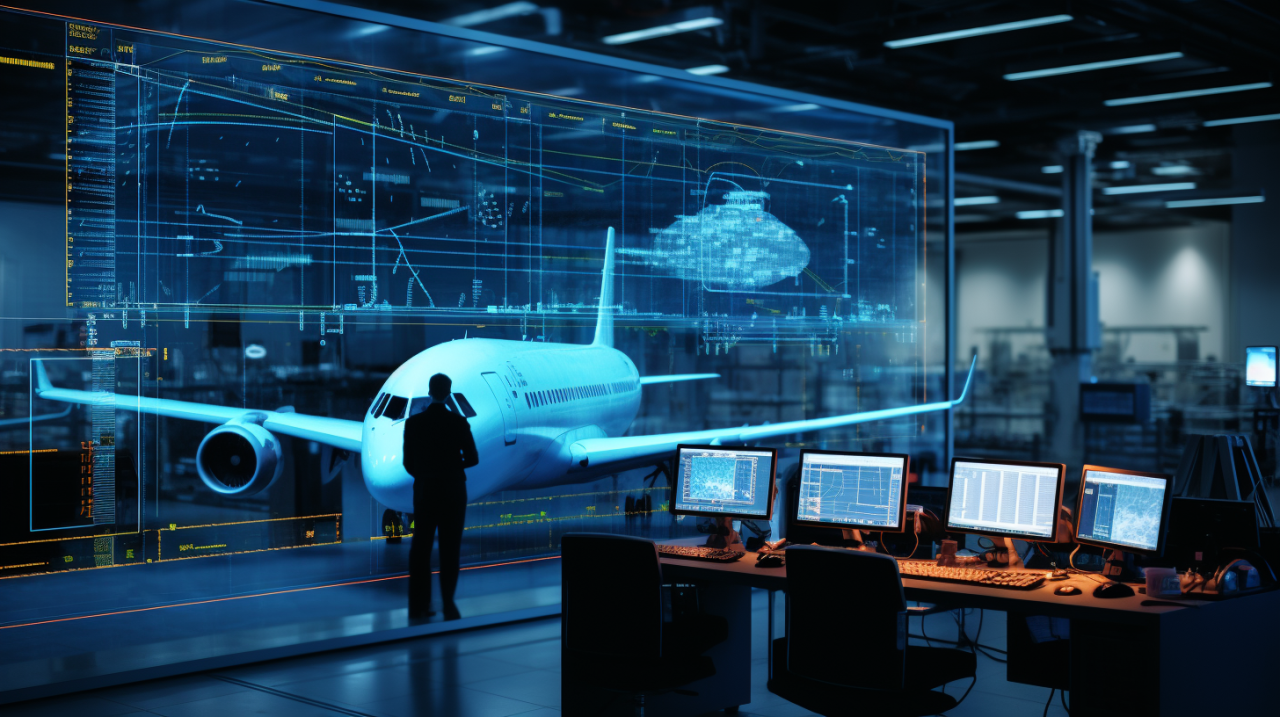In recent years, the role of AI in smart aerospace logistics has grown substantially. This technology is reshaping the aerospace industry by enhancing efficiency, accuracy, and safety. With the increasing complexity of aerospace operations, the integration of AI is becoming a necessity rather than an option.

Understanding AI in Aerospace
The adoption of artificial intelligence in aerospace is not just about replacing human intervention. Instead, it focuses on complementing human capabilities with machine intelligence to optimize operations. From predictive maintenance to autonomous flight systems, AI’s applications are vast and varied.
Benefits of AI in Aerospace Logistics
One of the primary benefits of incorporating AI into aerospace logistics is the significant improvement in operational efficiency. AI algorithms can analyze vast amounts of data quickly, allowing for faster decision-making processes and reducing the likelihood of errors. This leads to cost savings and improved resource management.
Enhanced Predictive Maintenance
AI’s ability to predict equipment failures before they occur is a game-changer in aerospace logistics. By analyzing data from various sensors, AI can forecast maintenance needs, thereby reducing downtime and extending the lifespan of equipment.
Optimized Flight Scheduling
AI helps in optimizing flight schedules by analyzing factors such as weather conditions, air traffic, and aircraft availability. This ensures that flights are on time and resources are used efficiently.
AI in Supply Chain Management
In the aerospace industry, supply chain management is critical. AI enhances supply chain operations by providing real-time data analysis and improving demand forecasting. This leads to a reduction in inventory costs and ensures that materials are available when needed.
Improved Inventory Management
AI systems can track inventory levels in real-time and predict future needs based on past trends and market conditions. This reduces the risk of overstocking or stockouts.
Streamlined Logistics Operations
By automating routine tasks, AI can streamline logistics operations, reducing the need for manual intervention and minimizing human errors. This leads to a more efficient and cost-effective supply chain.
Challenges of Implementing AI in Aerospace
While the benefits of AI in aerospace are significant, there are challenges to its implementation. Data security, integration with existing systems, and the high cost of AI technology are some of the hurdles that need to be overcome.
Data Security Concerns
With AI systems relying heavily on data, ensuring data security and privacy is paramount. Companies must implement robust security measures to protect sensitive information.
Integration with Legacy Systems
Many aerospace companies still use legacy systems for their operations. Integrating AI with these older systems can be challenging and may require significant investment in infrastructure upgrades.
Cost of AI Technology
The initial cost of implementing AI technology can be high. However, the long-term benefits in terms of efficiency and cost savings often justify the investment.
Future of AI in Aerospace Logistics
The future of AI in smart aerospace logistics looks promising. As technology advances, AI will become more integrated into all aspects of aerospace operations. This will lead to even greater efficiencies, improved safety, and reduced environmental impact.
AI and Autonomous Flight
In the future, AI will play a crucial role in the development of autonomous aircraft. This will revolutionize the way goods and people are transported, making air travel more efficient and accessible.
Reducing Environmental Impact
AI can help reduce the environmental impact of aerospace operations by optimizing fuel consumption and minimizing emissions. This is critical as the industry seeks to become more sustainable.
AI in Aerospace Innovations
The aerospace industry is continuously evolving, and AI is at the forefront of this innovation. From thermal control in space to drone swarming technology, AI is driving new advancements that are reshaping the industry.
Conclusion
The integration of AI in smart aerospace logistics is transforming the industry by enhancing efficiency, reducing costs, and improving safety. As technology continues to evolve, the role of AI in aerospace will only grow, bringing new opportunities and challenges.

FAQ
What is AI’s role in aerospace logistics?
AI helps optimize operations, improve efficiency, and enhance safety in aerospace logistics through predictive maintenance, optimized scheduling, and improved supply chain management.
What challenges does the aerospace industry face with AI implementation?
Key challenges include data security, integration with legacy systems, and the high initial cost of AI technology.
How does AI improve supply chain management in aerospace?
AI enhances supply chain management by providing real-time data analysis, improving demand forecasting, and streamlining logistics operations.
For more insights into AI applications in aerospace, visit Airbus.

